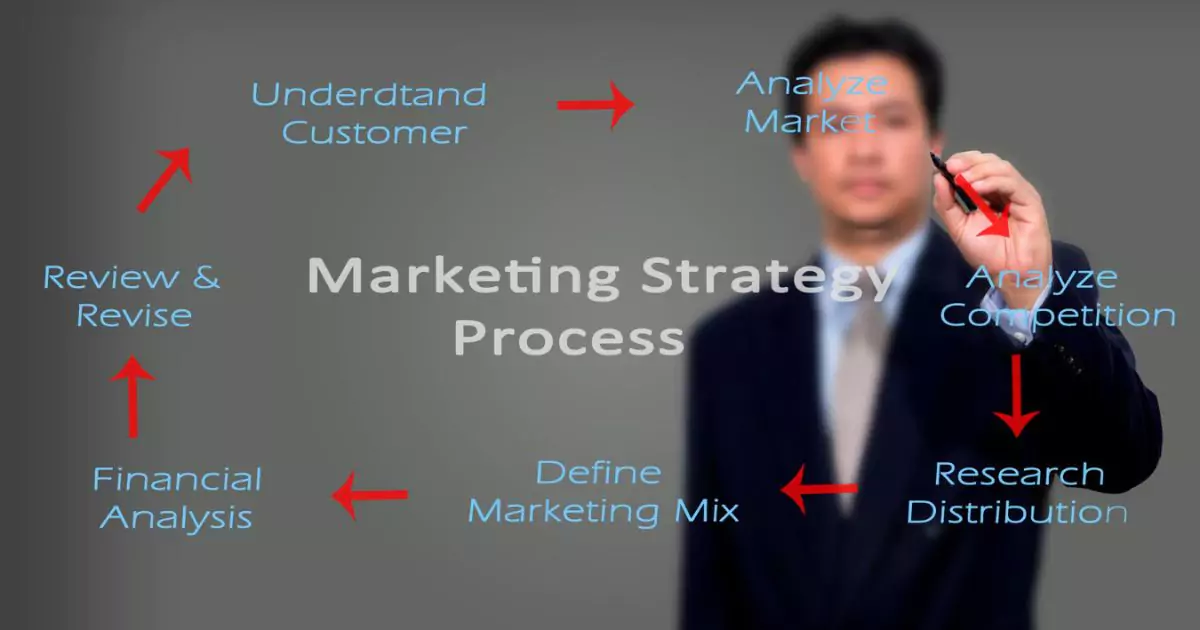
Marketing channels are the pathways through which goods, services, or information pass from the producer to the consumer. These channels play a crucial role in the overall marketing strategy of a business, as they determine how effectively a product reaches its target audience. Understanding marketing channels is essential for any business looking to optimize its marketing efforts and achieve its sales goals. This comprehensive guide will delve into what marketing channels are, explore various types, and discuss how they can be effectively utilized. We’ll cover essential aspects like call tracking marketing, marketing your law firm, SEO and social media marketing services, affiliate marketing software free, law firm marketing Los Angeles, marketing automation for agencies, and much more.
Understanding Marketing Channels
What is Marketing Channels?
Marketing channels refer to the routes through which products or services flow from the producer to the final consumer. These channels can include direct sales, online marketplaces, distributors, wholesalers, and retailers. The choice of marketing channels depends on various factors such as the type of product, target market, and business objectives. Effective marketing channels ensure that the product is available to the consumer at the right place and time, thereby maximizing sales and customer satisfaction.
Types of Marketing Channels
There are several types of marketing channels that businesses can utilize, each with its own advantages and challenges:
- Direct Marketing Channels: These involve direct communication between the company and the consumer without intermediaries. Examples include direct mail, telemarketing, and online sales.
- Indirect Marketing Channels: These involve intermediaries such as wholesalers, retailers, and distributors who help in getting the product to the consumer.
- Dual Distribution: This strategy involves using both direct and indirect channels to reach different segments of the market.
- Reverse Channels: These are channels through which customers return products or recyclables back to the producer.
Call Tracking Marketing
What is Call Tracking Marketing?
Call tracking marketing is a technique used to measure the effectiveness of marketing campaigns by tracking and recording information about incoming phone calls. This method allows businesses to attribute phone calls to specific marketing efforts, such as online ads, direct mail campaigns, or social media posts. By using unique phone numbers for different campaigns, businesses can gain insights into which marketing strategies are driving the most calls and conversions.
Benefits of Call Tracking Marketing
- Improved ROI Analysis: By understanding which campaigns generate the most calls, businesses can allocate their marketing budget more effectively.
- Enhanced Customer Insights: Call tracking provides valuable data on customer behavior and preferences, helping businesses tailor their marketing efforts.
- Increased Sales: By optimizing campaigns based on call tracking data, businesses can improve their lead generation and conversion rates.
Marketing Your Law Firm
Effective Strategies for Marketing Your Law Firm
Marketing a law firm requires a tailored approach that considers the unique needs of legal clients and the competitive landscape of the legal industry. Here are some effective strategies:
- SEO and Social Media Marketing Services: Investing in SEO and social media marketing services can help law firms improve their online visibility and attract more clients. By optimizing their website for search engines and engaging with potential clients on social media platforms, law firms can build a strong online presence.
- Content Marketing: Producing high-quality, informative content that addresses common legal questions and concerns can establish a law firm as an authority in its field and attract potential clients.
- Networking and Referrals: Building relationships with other professionals and encouraging satisfied clients to refer their friends and family can be a powerful source of new business.
Law Firm Marketing Los Angeles
In a competitive market like Los Angeles, law firm marketing requires a strategic approach to stand out. Leveraging local SEO techniques, participating in community events, and advertising in local publications can help law firms in Los Angeles reach potential clients in their area. Additionally, investing in professional law firm marketing services can ensure that marketing efforts are aligned with best practices and yield the best results.
SEO and Social Media Marketing Services
Importance of SEO and Social Media Marketing Services
SEO (Search Engine Optimization) and social media marketing are critical components of a modern marketing strategy. These services help businesses improve their online visibility, attract more visitors to their website, and engage with their target audience.
- SEO Services: SEO involves optimizing a website to rank higher in search engine results for relevant keywords. This includes on-page optimization, such as improving website content and structure, and off-page optimization, such as building high-quality backlinks.
- Social Media Marketing: Social media marketing involves creating and sharing content on social media platforms to engage with the target audience and promote the business. This can include posting updates, sharing articles, running ads, and interacting with followers.
Benefits of SEO and Social Media Marketing Services
- Increased Website Traffic: By improving search engine rankings and engaging with potential customers on social media, businesses can drive more traffic to their website.
- Enhanced Brand Awareness: Consistent and strategic social media marketing can increase brand visibility and recognition.
- Higher Conversion Rates: SEO and social media marketing can help attract more qualified leads, leading to higher conversion rates and increased sales.
Affiliate Marketing Software Free
What is Affiliate Marketing?
Affiliate marketing is a performance-based marketing strategy where businesses reward affiliates for driving traffic or sales to their website through the affiliate’s marketing efforts. Affiliates can include bloggers, influencers, and other content creators who promote the business’s products or services in exchange for a commission.
Benefits of Affiliate Marketing Software Free
- Cost-Effective: Using free affiliate marketing software allows businesses to manage their affiliate programs without incurring additional costs.
- Increased Reach: Affiliates can help businesses reach a wider audience by promoting their products to their followers and readers.
- Performance-Based: Businesses only pay for actual results, such as clicks or sales, making affiliate marketing a cost-effective way to drive revenue.
Choosing the Right Affiliate Marketing Software
When selecting affiliate marketing software, businesses should consider features such as ease of use, tracking capabilities, and the ability to integrate with other marketing tools. Free options may offer basic functionalities, but it’s essential to ensure that the software meets the business’s specific needs.
Marketing Automation for Agencies
What is Marketing Automation?
Marketing automation involves using software to automate repetitive marketing tasks, such as email campaigns, social media posting, and lead nurturing. This allows businesses to streamline their marketing efforts, save time, and improve efficiency.
Benefits of Marketing Automation for Agencies
- Increased Efficiency: Automation allows agencies to manage multiple client campaigns simultaneously, improving productivity and reducing manual workload.
- Improved Lead Management: Marketing automation tools can help agencies track and nurture leads more effectively, leading to higher conversion rates.
- Enhanced Reporting: Automation software often includes robust analytics and reporting features, allowing agencies to measure the success of their campaigns and make data-driven decisions.
Choosing the Right Marketing Automation Software
When selecting marketing automation software for agencies, it’s essential to consider factors such as scalability, ease of use, and integration with existing tools. Agencies should look for software that offers comprehensive features, including email marketing automation, social media management, and lead scoring.
What Does CPM Stand For in Advertising?
Understanding CPM in Advertising
CPM stands for Cost Per Mille, with “mille” meaning thousand in Latin. In advertising, CPM refers to the cost an advertiser pays for one thousand impressions of their ad. This metric is commonly used in digital advertising to measure the cost-effectiveness of an ad campaign.
Importance of CPM in Advertising
- Budgeting: CPM helps advertisers understand how much they will spend to reach a specific number of impressions, aiding in budget planning.
- Comparing Campaigns: By comparing the CPM of different campaigns, advertisers can determine which campaigns are delivering the most value.
- Performance Measurement: CPM provides insights into the reach of an ad campaign, allowing advertisers to assess its effectiveness in terms of visibility.
The 3 P’s of Marketing
What Are the 3 P’s of Marketing?
The 3 P’s of marketing refer to three critical elements that businesses must consider in their marketing strategy: Product, Price, and Promotion.
- Product: This encompasses the goods or services offered by the business. It involves product design, features, quality, and branding. A successful product meets the needs and desires of the target market.
- Price: Price refers to the amount customers are willing to pay for the product. Pricing strategies can vary based on factors such as cost, competition, and perceived value. Setting the right price is crucial for profitability and market positioning.
- Promotion: Promotion involves the various methods used to communicate the product’s benefits and persuade customers to purchase. This includes advertising, public relations, sales promotions, and digital marketing.
Integrating the 3 P’s of Marketing
Integrating the 3 P’s of marketing into a cohesive strategy is essential for achieving business goals. By aligning the product, price, and promotion, businesses can effectively reach their target audience and drive sales.
Marketing Cloud Software
What is Marketing Cloud Software?
Marketing cloud software is a comprehensive suite of digital marketing tools designed to manage and optimize all aspects of a business’s marketing efforts. This software typically includes features for email marketing, social media management, content creation, analytics, and customer relationship management (CRM).
Benefits of Marketing Cloud Software
- Unified Platform: Marketing cloud software provides a centralized platform for managing all marketing activities, improving efficiency and collaboration.
- Advanced Analytics: These tools offer robust analytics and reporting capabilities, allowing businesses to measure the effectiveness of their campaigns and make data-driven decisions.
- Personalization: Marketing cloud software often includes features for personalized marketing, enabling businesses to deliver tailored messages to their target audience.
Choosing the Right Marketing Cloud Software
When selecting marketing cloud software, businesses should consider factors such as scalability, integration capabilities, and the specific needs of their marketing team. It’s essential to choose a platform that offers comprehensive features and aligns with the business’s marketing objectives.
PPC Advertising Management
What is PPC Advertising?
PPC (Pay-Per-Click) advertising is a digital marketing model where advertisers pay a fee each time their ad is clicked. This model is commonly used in search engine advertising (e.g., Google Ads) and social media advertising (e.g., Facebook Ads).
Benefits of PPC Advertising Management
- Immediate Results: PPC advertising can generate immediate traffic to a website, making it an effective strategy for short-term marketing goals.
- Targeted Advertising: PPC allows advertisers to target specific demographics, locations, and keywords, ensuring that ads are shown to the most relevant audience.
- Measurable ROI: PPC platforms provide detailed analytics and reporting, allowing advertisers to measure the return on investment (ROI) of their campaigns.
Best Practices for PPC Advertising Management
Effective PPC advertising management involves continuous monitoring, optimization, and testing. Advertisers should regularly analyze campaign performance, adjust bids, and test different ad creatives to maximize results. Additionally, using tools like keyword planners and performance tracking software can help optimize PPC campaigns.
Marketing Integration
What is Marketing Integration?
Marketing integration involves coordinating various marketing channels and tactics to create a cohesive and consistent brand message. This approach ensures that all marketing efforts work together to achieve the business’s overall objectives.
Benefits of Marketing Integration
- Consistent Messaging: Integrated marketing ensures that all marketing channels deliver a consistent message, reinforcing the brand’s identity and value proposition.
- Improved Efficiency: By coordinating marketing efforts, businesses can eliminate redundancies and optimize resource allocation.
- Enhanced Customer Experience: Integrated marketing creates a seamless customer journey, enhancing the overall experience and building stronger customer relationships.
Strategies for Effective Marketing Integration
- Cross-Channel Campaigns: Develop campaigns that leverage multiple marketing channels, such as email, social media, and content marketing, to reach a broader audience.
- Unified Metrics: Use unified metrics and analytics to measure the performance of integrated campaigns and make data-driven decisions.
- Collaborative Planning: Encourage collaboration between different marketing teams to ensure alignment and consistency across all efforts.
Email Marketing Automation Software
What is Email Marketing Automation Software?
Email marketing automation software allows businesses to automate the process of sending targeted and personalized emails to their subscribers. This software typically includes features for creating email campaigns, segmenting audiences, and tracking performance.
Benefits of Email Marketing Automation Software
- Time Savings: Automation eliminates the need for manual email sending, saving time and allowing marketers to focus on strategy and creativity.
- Personalization: Automated email marketing software enables businesses to send personalized messages based on user behavior, preferences, and purchase history. This can significantly increase engagement and conversion rates.
- Improved Efficiency: By automating routine tasks such as follow-ups, welcome emails, and abandoned cart reminders, businesses can ensure consistent communication with their audience without manual intervention.
- Advanced Analytics: Email marketing automation software typically includes robust analytics and reporting features, allowing marketers to track open rates, click-through rates, conversions, and other key metrics. This data is essential for optimizing email campaigns and improving ROI.
- Scalability: Automation makes it easier to scale email marketing efforts as the business grows. Whether you have hundreds or thousands of subscribers, automation ensures that each recipient receives timely and relevant communications.
Choosing the Right Email Marketing Automation Software
When selecting email marketing automation software, businesses should consider factors such as ease of use, integration capabilities, and the specific needs of their marketing team. Key features to look for include drag-and-drop email builders, audience segmentation, A/B testing, and detailed analytics. Popular options include Mailchimp, HubSpot, and ActiveCampaign, each offering a range of features to suit different business needs.
What Does PPC Stand For in Marketing?
Understanding PPC in Marketing
PPC stands for Pay-Per-Click, a digital advertising model where advertisers pay a fee each time their ad is clicked. PPC is commonly used in search engine advertising (e.g., Google Ads) and social media advertising (e.g., Facebook Ads). This model allows businesses to bid for ad placement in a search engine’s sponsored links or on social media platforms when users search for relevant keywords or fit certain demographic criteria.
Benefits of PPC Advertising
- Immediate Traffic: PPC campaigns can drive immediate traffic to a website, making it an effective strategy for launching new products, services, or promotions.
- Targeted Reach: PPC allows businesses to target specific audiences based on keywords, demographics, location, interests, and behavior, ensuring that ads are shown to the most relevant users.
- Budget Control: Advertisers have full control over their budget and can set daily or monthly spending limits. This flexibility allows businesses to manage their advertising costs effectively.
- Measurable Results: PPC platforms provide detailed analytics and reporting, allowing businesses to track impressions, clicks, conversions, and ROI. This data is crucial for optimizing campaigns and making informed decisions.
- Brand Visibility: PPC ads appear at the top of search engine results pages and in prominent positions on social media platforms, increasing brand visibility and awareness.
Best Practices for PPC Advertising
To maximize the effectiveness of PPC advertising, businesses should follow best practices such as:
- Keyword Research: Conduct thorough keyword research to identify relevant and high-performing keywords for your ads. Use tools like Google Keyword Planner and SEMrush to find keywords that align with your target audience’s search intent.
- Ad Copy Optimization: Write compelling ad copy that includes the target keywords and highlights the unique value proposition of your product or service. Use strong calls-to-action (CTAs) to encourage clicks and conversions.
- Landing Page Relevance: Ensure that the landing page where users are directed after clicking the ad is relevant to the ad content and provides a seamless user experience. This can improve conversion rates and reduce bounce rates.
- A/B Testing: Continuously test different ad variations, including headlines, ad copy, images, and CTAs, to determine which elements perform best. Use A/B testing to optimize your ads and improve their effectiveness.
- Bid Management: Monitor and adjust your bids regularly to ensure that your ads remain competitive and achieve the desired results. Use automated bidding strategies offered by PPC platforms to optimize your bids based on performance goals.
Best Marketing Quotes
Inspirational Marketing Quotes
Marketing is both an art and a science, and it often requires creativity, innovation, and persistence. Here are some of the best marketing quotes to inspire and motivate marketers:
- “The best marketing doesn’t feel like marketing.” – Tom Fishburne: This quote emphasizes the importance of creating authentic and engaging marketing experiences that resonate with the audience.
- “Content is king, but distribution is queen and she wears the pants.” – Jonathan Perelman: Highlighting the significance of content marketing and the need for effective distribution channels to reach the target audience.
- “People do not buy goods and services. They buy relations, stories, and magic.” – Seth Godin: Reminding marketers that building relationships and creating compelling narratives are key to successful marketing.
- “Marketing is no longer about the stuff that you make, but about the stories you tell.” – Seth Godin: Emphasizing the power of storytelling in modern marketing.
- “Your brand is what other people say about you when you’re not in the room.” – Jeff Bezos: Underlining the importance of brand reputation and the perceptions of customers.
Applying Marketing Quotes to Strategy
These quotes can serve as guiding principles for developing and executing marketing strategies. By focusing on authenticity, storytelling, and building relationships, businesses can create meaningful connections with their audience and drive long-term success.
Marketing Integration
What is Marketing Integration?
Marketing integration involves combining various marketing channels and tactics into a cohesive and unified strategy. This approach ensures that all marketing efforts work together harmoniously to achieve the business’s overall objectives. Integrated marketing aims to provide a seamless and consistent brand experience across all touchpoints, from online ads and social media to email campaigns and in-store promotions.
Benefits of Marketing Integration
- Consistent Messaging: Integrated marketing ensures that all marketing channels deliver a consistent message, reinforcing the brand’s identity and value proposition. This consistency helps build brand recognition and trust among consumers.
- Improved Efficiency: By coordinating marketing efforts, businesses can eliminate redundancies and optimize resource allocation. Integrated marketing allows for more efficient use of budgets, time, and personnel.
- Enhanced Customer Experience: Integrated marketing creates a seamless customer journey, enhancing the overall experience and building stronger customer relationships. A cohesive approach ensures that customers receive relevant and consistent information at every stage of their journey.
- Better Data Insights: Integrated marketing allows businesses to collect and analyze data from multiple channels, providing a comprehensive view of campaign performance. This data can inform strategic decisions and improve overall marketing effectiveness.
- Increased ROI: By aligning marketing efforts and leveraging synergies between channels, integrated marketing can lead to higher returns on investment. Coordinated campaigns are more likely to achieve their objectives and drive measurable results.
Strategies for Effective Marketing Integration
- Cross-Channel Campaigns: Develop campaigns that leverage multiple marketing channels, such as email, social media, content marketing, and paid advertising. Ensure that each channel supports the overall campaign goals and delivers a consistent message.
- Unified Metrics: Use unified metrics and analytics to measure the performance of integrated campaigns. Track key performance indicators (KPIs) across all channels to gain a holistic view of campaign success and identify areas for improvement.
- Collaborative Planning: Encourage collaboration between different marketing teams, such as digital, content, social media, and advertising, to ensure alignment and consistency across all efforts. Regular meetings and shared planning documents can facilitate communication and coordination.
- Customer-Centric Approach: Focus on the customer journey and ensure that marketing efforts are aligned with customer needs and preferences. Use customer data and insights to personalize and tailor marketing messages for maximum impact.
- Technology Integration: Leverage marketing technology platforms, such as customer relationship management (CRM) systems and marketing automation tools, to streamline and integrate marketing efforts. These platforms can help manage campaigns, track performance, and automate repetitive tasks.
Understanding and effectively utilizing marketing channels is essential for any business looking to optimize its marketing efforts and achieve its sales goals. From call tracking marketing and law firm marketing to SEO and social media marketing services, affiliate marketing, and marketing automation, there are numerous strategies and tools available to help businesses reach their target audience and drive results. By integrating various marketing channels and leveraging the benefits of each, businesses can create a cohesive and effective marketing strategy that delivers consistent messaging, enhances the customer experience, and maximizes ROI.
Whether you are a small business owner, a marketing professional, or an agency, it is crucial to stay informed about the latest trends and best practices in marketing. By continuously learning and adapting to the changing landscape, you can ensure that your marketing efforts remain relevant, effective, and impactful. With the right marketing channels and strategies in place, you can achieve your business objectives and build lasting relationships with your customers.

























































































































